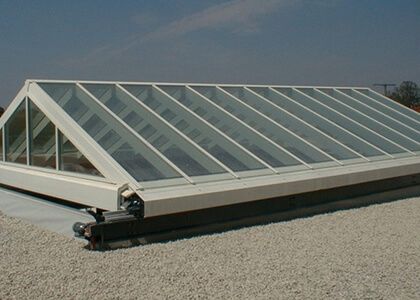
The resin tile is a coextruded composite with PVC and ASA as the main materials. The products after the two materials are cooled and formed at a temperature of 70 to 80 degrees will be deformed by high temperature, and when the temperature is between minus 30 degrees and 70 degrees, the high and low-temperature contrast will change drastically.
Therefore, the synthetic resin tile is strict in designing the spacing of the purlins, so as to prevent the synthetic resin tile from drooping or lifting the drum due to thermal expansion and contraction, thereby greatly reducing the waterproof effect.
Therefore, resin tiles are not suitable for building roofing tiles in high-temperature fields such as smelting, casting, and steel.
Moreover, the resin tile is not suitable for roofs with a slope of less than 15 degrees. The flat arc-shaped peaks have a wave height of about 2.5 cm, which can not meet the flow requirements of large-span building roofs. Therefore, it is recommended to use synthetic resin tiles with large span and flat slopes. As the main roofing material, it is of course possible to use it with some high-profile T-tiles.